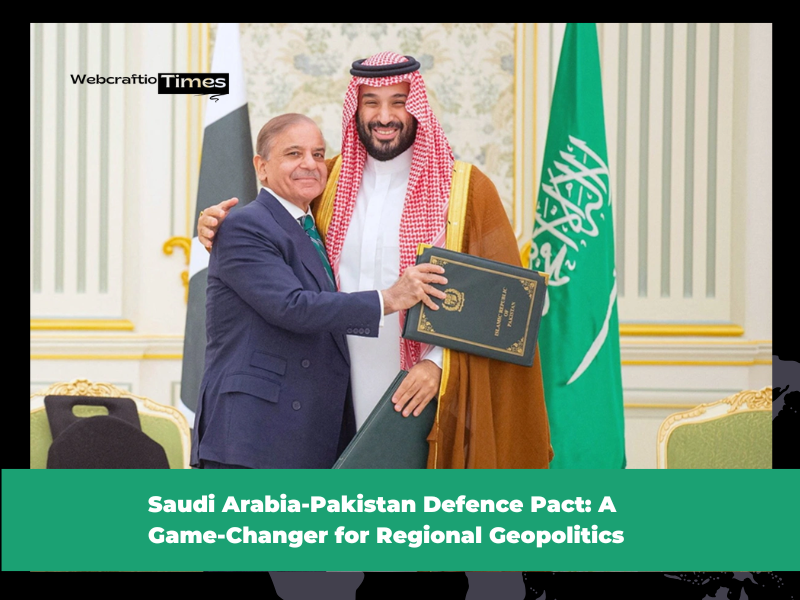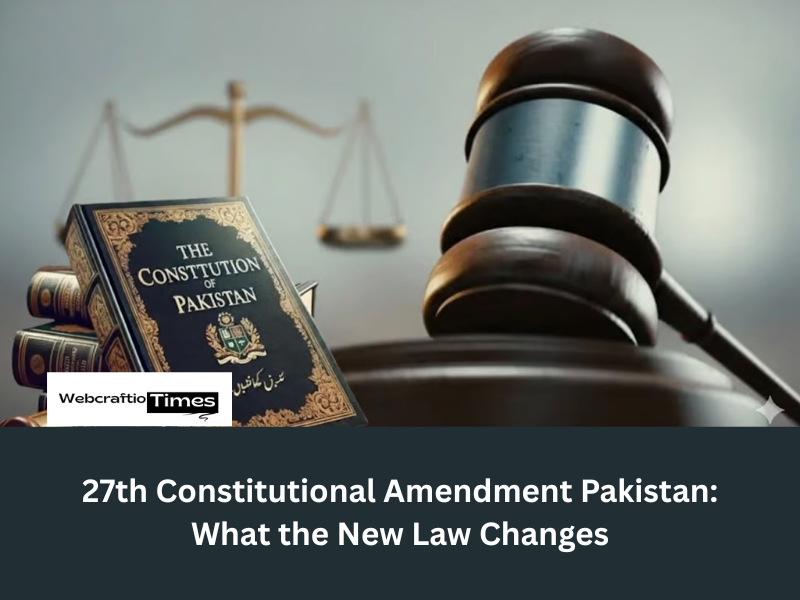A Historic Defence Agreement Between Saudi Arabia and Pakistan
On September 17, 2025, Pakistan’s Prime Minister Shehbaz Sharif and Saudi Crown Prince Mohammed bin Salman signed a Strategic Mutual Defence Agreement (SMDA) in Riyadh. The ceremony, held at Al-Yamamah Palace, showcased full royal protocol, including a red-carpet welcome and Saudi F-15 fighter jets escorting the Pakistani delegation.
This landmark pact formalises the deep-rooted ties between the two countries, marking nearly eight decades of military, political, and economic cooperation.
Why the Saudi-Pakistan Defence Deal Matters Now
The timing of this agreement is crucial. It comes after:
- Rising Israeli aggression, including its strike on Doha earlier this month.
- Increased Gulf insecurity as reliance on the US security umbrella declines.
- Recent India-Pakistan clashes that nearly escalated into a nuclear conflict.
According to Pakistan’s Ministry of Foreign Affairs, the deal ensures that “any aggression against either country shall be considered aggression against both.”
Implications for Regional Security
Strengthening Gulf Security
Experts see the pact as a “watershed moment.” It reflects Gulf states’ anxieties after Israel’s repeated strikes and doubts about US protection. With this deal, Saudi Arabia gains stronger military backing, while Pakistan deepens its presence in the Gulf.
India-Pakistan Relations
The defence agreement also directly affects India, Pakistan’s long-time rival. Following recent cross-border skirmishes, New Delhi is carefully reviewing the pact’s implications. Analysts suggest this deal could complicate future India-Pakistan military dynamics.
A Potential Model for Future Partnerships
Security experts believe the SMDA may pave the way for similar agreements between Pakistan and UAE or Qatar, expanding Pakistan’s role in Gulf defence strategy.
Historic Military Ties Between Pakistan and Saudi Arabia
- 1947: Saudi Arabia recognized Pakistan shortly after its independence.
- 1951: Both nations signed a Treaty of Friendship.
- 1967–2025: Over 8,000 Saudi personnel trained by Pakistan.
- 1982: Formal agreement for deputation of Pakistani armed forces.
Today, the new pact builds on this legacy, strengthening joint training, defence production, and troop deployment opportunities.
Concerns from the United States
The pact also raises questions in Washington, where US officials have long expressed concerns about Pakistan’s missile programme. Analysts believe Pakistan must clarify that its nuclear capabilities remain India-centric, not intended for Saudi conflicts.
The Nuclear Question
Although Saudi Arabia has shown interest in civilian nuclear technology, speculation persists about Riyadh seeking nuclear guarantees from Islamabad. Experts stress, however, that the SMDA does not include a nuclear umbrella or extended deterrence.
What This Means for the Future
The Saudi-Pakistan defence agreement represents:
- Stronger political alignment in the Muslim world.
- Greater military cooperation in training, production, and deployment.
- A new balance of power in South Asia and the Gulf region.
While risks remain particularly with Iran and India, the pact signals that Saudi Arabia continues to value Pakistan’s military strength, despite its closer economic ties with India in recent years.
Conclusion
The Saudi Arabia-Pakistan defence pact is more than just a bilateral agreement. It’s a strategic shift in Middle East and South Asian geopolitics, reflecting Gulf states’ declining trust in US security and Islamabad’s rising importance in regional defence.
As one analyst summarized: “At precisely the moment when Pakistan faces Indian military threats, it has secured a powerful collective defence commitment from Saudi Arabia.
1. What is the Saudi-Pakistan defence pact 2025?
The Saudi-Pakistan defence pact, officially called the Strategic Mutual Defence Agreement (SMDA), is a security deal signed on September 17, 2025, in Riyadh. It ensures that an attack on either country will be considered an attack on both, strengthening military, political, and defence cooperation.
2. Why did Saudi Arabia sign a defence pact with Pakistan?
Saudi Arabia signed the pact due to regional insecurity, including Israel’s attacks on Gaza and Doha, and doubts about US reliability as a security guarantor. Pakistan, as the only Muslim nuclear power, is seen as a natural partner for Gulf defence.
3. How does the Saudi-Pakistan defence agreement impact India?
The deal adds new complexity to India-Pakistan relations. After their recent military clashes, India views the pact as a potential security challenge, since Saudi Arabia has pledged support for Pakistan in case of external aggression.
4. Does the defence pact include nuclear cooperation?
No. Analysts confirm the agreement does not provide a nuclear umbrella to Saudi Arabia. It focuses on joint training, defence production, and military cooperation, not nuclear guarantees.
5. How will this pact affect Pakistan’s role in the Gulf?
Pakistan’s position in the Gulf is expected to strengthen. The pact could lead to:
- More Pakistani troops stationed in Saudi Arabia
- Increased defence training programs
- Joint defence production projects
- Possible future defence agreements with UAE or Qatar
6. What are the risks of the Saudi-Pakistan defence deal?
The agreement may entangle Pakistan in Saudi regional rivalries, especially with Iran. It could also trigger geopolitical tensions with India, complicating South Asian security.
7. Has Saudi Arabia signed such defence pacts before?
Saudi Arabia has close defence cooperation with the US, but a formal mutual defence pact with Pakistan is unprecedented. This marks the first time Riyadh has committed to treating aggression against Pakistan as aggression against itself.
Stay Tuned For More Updates.



